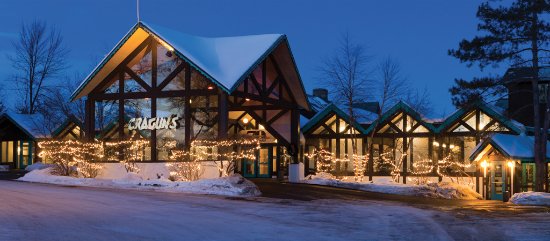Come learn about graphic student enrollment visuals along with pertinent demographic data to help you discover your district's real data. Use enrollment to tell your story and share the facts that will dispel the rumors.
Michael Hoheisel has more than 30 years of public finance experience. His primary focus is providing financial services to school districts in the upper Midwest, specifically Minnesota. Michael is affiliated with the Minnesota School Boards Association, the Minnesota Association of School Administrators, the Minnesota Association of School Business Officials and the Minnesota Rural Education Association. He holds a BS in management and finance from St. John's University and has served on the MASA Foundation Board since 2007.
Matt Rantapaa has worked as a public finance banker/analyst since 2009, specializing in education financing and helping school districts connect financial needs with effective debt solutions. He is affiliated with the Minnesota School Boards Association, the Minnesota Association of School Administrators, the Minnesota Association of School Business Officials and the Minnesota Rural Education Association. Matt earned his BS in economics from the University of South Dakota.
Earning trust from your staff, community and business partners is essential for a successful referendum campaign. The playbook has changed since 2020 with a brighter spotlight on school districts and how they address emerging issues. Join us as we unpack successful communication strategies, we’ve seen work in districts since the start of the pandemic. We’ll share ways your organization can tell stories of success about your students, staff and programs to rebuild or build trust among your key audiences. We’ll also share ways to better communicate your needs ahead of your next referendum campaign.
Jake Sturgis has worked for two school districts in the Twin Cities for nearly 12 years prior to starting Captivate Media + Consulting in 2014. He served on the Minnesota School Public Relations Association (MinnSPRA) Board from 2015-2019, including one year as President. Jake and his team work with dozens of districts each year on communications projects. His team produces the MREA award videos each year.
Dr. Bill Adams is an experienced Superintendent with a demonstrated history of working in education. He recently completed his Doctor of Education (Ed.D) in Educational Leadership from Bethel University. Before joining Willmar Schools, Bill was a superintendent in Janesville-Waldorf-Pemberton and New London-Spicer districts.
The federal and state school nutrition programs have strict regulations about the reimbursement staying within the non-profit food service account (02 account). This session will provide information on the complex situations that rural schools deal with and how to navigate the use of funds in those situations.
Melissa Elder
Melissa Elder currently serves as the School Nutrition Business Supervisor within the MN Department of
Education’s (MDE) Nutrition Program Services (NPS) Division. Growing up on a family-owned dairy farm in southwestern Minnesota, Melissa understands life in small and rural schools and the every-day challenges that school professionals in our rural areas face. She is passionate about helping school administrators and foodservice professionals wade through the program regulations in order to see the real joy of working in school nutrition, which is ensuring our students have healthy foods and come out of their cafeterias each day with smiling faces and alert minds that are ready to learn.
SchoolsAlive! strategies have been proven to positively impact students' academics, behavior, and mental and physical health. Participants will learn about the Active Schools initiative and Comprehensive School Physical Activity Programs (CSPAPs) and how they can be used as a Tier 1 intervention. Attendees will be able to identify the five components of a CSPAP (Physical Activity Before/After School; Physical Activity During School; Physical Education; Family and Community Involvement; and Staff Involvement) as well as evidence-based implementation strategies for each component.
Dr. Kristen Ford is an associate professor of health education, physical education, and general secondary pedagogy at Concordia College (Moorhead, MN). Kristen also teaches in Concordia's Master of Teaching and Learning program.
Dr. Jenny Linker is an associate professor in physical education teacher education at NDSU. She also serves as the Program Coordinator for NDSU's undergraduate Health and Physical Education programs and Master's in Leadership in Physical Education and Sport. Jenny and Kristen are SchoolsAlive! Instructional Co-Designers and Trainers and have been helping schools and after school programs implement best practices in physical activity for over 12 years.
Living our purpose in education leadership means providing excellent student experiences that connect to the world outside our walls. Learn how to bring joy and passion to the classroom and hear about successes and failures in doing this work. Your students will be better prepared while connecting to future careers in your community.
Jenny Maras has been a high school business teacher for 21 years. She teaches everything from introductory computer classes to advanced digital media curriculum and traditional business such as accounting, marketing, entrepreneurship, and personal finance. She is drawn to the practical aspects of her curriculum, pointing students to their future at every turn while placing emphasis on relationship and community connections. She was awarded MREA's “Educator of Excellence” award in 2022 and will represent Minnesota for the national award in November.
The world of special education is continually adapting to new challenges, and teletherapy has emerged as an effective solution to enhance students’ access to essential services. Learn how to navigate providing virtual speech services, lessons learned, the quality services our people provide to our members, and how teletherapy has enabled access to special education services in our rural area.
Cassandra Gohman has been working with the Southwest West Central (SWWC) Service Cooperative for the past 8 years; currently a Licensed Special Education Director serving as the Staff Development and Low Incidence Administrator. In her role, she providers leadership and directs the Regional 6 & 8 Low Incidence Project and SWWC Staff Development Programs, assists member districts in implementing special education services for student’s birth to age 21 in conformance with District, State, and Federal objectives, serves as a resource to SWWC and school personnel, and maintains adequate staffing to ensure objectives of programs and services are achieved.
Jennifer Kimman is the Director of the Educational Learning Centers with the Southwest-West Central Service Cooperative. She currently enjoys working with leaders in education to ensure students with special needs are provided a meaningful, high-quality education. Throughout Jen’s years working with SWWC, she has had the privilege of working closely with the team of speech language pathologists. Together they are meeting the challenges of staff shortages by incorporating teletherapy practices across the region.
Generative AI and tools like ChatGPT are the latest technology disruptions to hit our education system–both K-12 and post secondary education. How will these tools impact our students? How do they affect how teachers teach? How will these technologies impact the workforce? As with most technology, Generative AI can have both a light and a dark side. In this session, we will discuss ways that Generative AI can be used to enhance the learning experience for students and how educators can adapt practices that use Generative AI complement the learning process in any content area.We will also talk about how Generative AI can save teachers time and model the use of these tools for students. Participants will leave with an understanding of how Generative AI works, resources and guidance for helping students use it to increase their learning, and how to help students avoid the pitfalls of misuse.
Mary Mehsikomer has worked in Minnesota's education system on technology-related issues for over 40 years. In her current role at Sourcewell, she helps districts with strategic technology planning and manages the Minnesota Learning Commons, a partnership between the U of M, Minnesota State, and the Minnesota Department of Education, which advocates for innovation and best practices in digital learning. Mary holds a CoSN CETL certification and is an ISTE Certified Educator.
If you already know you want to utilize arts integration in teaching but aren’t sure how to get started, this session is for you. Perpich Center looks at arts integration along a continuum. #ItDepends. Be introduced to four models of arts integration and five questions to help you decide which model is most appropriate to the given situation. Resources include a brief overview of artistic processes; a lesson/unit planning template for each model; suggested types of assessments; examples Big Ideas, EQs, EUs; and examples of how a lesson/unit might appear through the different models of integration.
Wendy Barden, Ph.D. leads Professional Development and Resource Programs at Perpich Center for Arts Education. She and eight specialists provide arts-based professional development to districts, schools, departments, and individuals statewide. Prior to coming to Perpich Center, Barden wore many hats in District 279 Osseo Area Schools—elementary and secondary music educator, K-12 music coordinator, grant writer, and curriculum integration coordinator at Birch Grove Elementary School for the Arts.
There is a major crisis in public school leadership in our state and nationally. The perception is that school district leadership positions are so challenging that the purpose and vision to make an impact and make a difference to children and families is to great too endure. As a result, we see a lack of candidates for these positions in the rural, metro, and urban levels. The survey complete in December of 2022 demonstrates that there is a great deal of support and conviction for public schools leaders to make an impact and make a difference with our children, families, and communities! School Board members and communities must acknowledge the need to invest time and energy in building relationships with today's public-school leaders.
Dr. Christopher E. Mills Superintendent of Schools / Stephen-Argyle Central, MN 2000-2023 Superintendent of Schools / Thief River Falls, MN 2023- Faculty / Minnesota State University-Moorhead 2010-Present
Learn what it means to support the “trifecta” of relationships inside every school district. We will emphasize legal strategies for responding to difficult situations surrounding three types of relationships: student-student, teacher-teacher, and student-teacher. This session will include core legal principles from the Safe and Supportive Schools Act, Title IX, and the Minnesota Human Rights Act.
Abbie Thurmes is an attorney at Pemberton Law Firm and practices employment, labor, and school law. Abbie received her Bachelor of Science degree in Criminal Justice and went to Mitchell Hamline School of Law. Abbie has a passion for helping others and problem-solving, and enjoys assisting school districts with their daily needs, including both student and employee matters.
Elise Heifort is an attorney with the Pemberton Law Firm, practicing primarily in the areas of employment law, labor law, and school law. She obtained her Bachelor of Arts degree in Communication from the University of Minnesota, Duluth, and later attended law school at the University of St. Thomas School of Law. Elise grew up in Fergus Falls, Minnesota, and enjoys serving clients throughout Greater Minnesota.
Do the paraprofessionals that you hire struggle to pass the para competency exams? Join us to find out what Worthington School District has done to better prepare new paraprofessionals for the exams and success in their new roles.
Kris Doeden has taught for 31 years in Worthington at various grade levels. She is committed to a positive work environment for all school employees to enhance the learning opportunities for all students.
Sharon Johnson has been the Community Education Director in Worthington for eleven years. She oversees the Adult Basic Education department and proposed the collaboration that resulted in the paraprofessional competency training now offered to new hires.
A discussion of key findings gathered from a dissertation on teacher recruitment and retention challenges post-COVID-19. The purpose of this case study was to understand recruitment and retainment challenges districts faced pre-COVID-19 and post-COVID-19. Human resources administrators and teaching and learning administrators were interviewed in pairs and discussed challenges their district has faced related to recruitment and retainment of teachers pre- and post-COVID-19. Further, the participant pairs described strategies their districts are using to recruit and retain teachers. The themes from the analysis included: teacher candidate characteristics, recruitment strategies, factors for mobility, and factors and strategies for retention.
Dr. Julie Williams is the Director of Student Support Services for Cambridge-Isanti Schools. Dr. Williams has over 20 years of experience in the education system as a teacher, supervisor and a director. She received her B.A., M.A., Ed.S. and Ed.D. degrees from the University of St. Thomas and holds licensure in the areas of K-8 Elem, 5-8 Language Arts/Communication, K-12 Special Ed, Principal, Director of SpEd and Superintendent.
 “I had great conversations with a variety of professionals—superintendents, principals, teachers, school board members. I LOVE the professional energy in celebrating and learning from success!”
“I had great conversations with a variety of professionals—superintendents, principals, teachers, school board members. I LOVE the professional energy in celebrating and learning from success!”



 Monday, November 13, 8:30 am
Monday, November 13, 8:30 am

